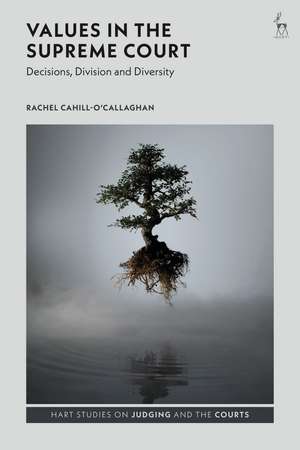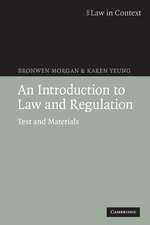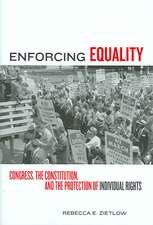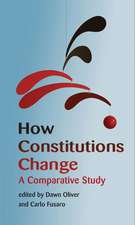Values in the Supreme Court: Decisions, Division and Diversity: Hart Studies on Judging and the Courts
Autor Rachel Cahill-O'Callaghanen Limba Engleză Paperback – 25 aug 2021
| Toate formatele și edițiile | Preț | Express |
|---|---|---|
| Paperback (1) | 217.35 lei 6-8 săpt. | |
| Bloomsbury Publishing – 25 aug 2021 | 217.35 lei 6-8 săpt. | |
| Hardback (1) | 497.89 lei 3-5 săpt. | |
| Bloomsbury Publishing – 19 feb 2020 | 497.89 lei 3-5 săpt. |
Preț: 217.35 lei
Nou
Puncte Express: 326
Preț estimativ în valută:
41.59€ • 43.43$ • 34.34£
41.59€ • 43.43$ • 34.34£
Carte tipărită la comandă
Livrare economică 15-29 aprilie
Preluare comenzi: 021 569.72.76
Specificații
ISBN-13: 9781509954766
ISBN-10: 1509954767
Pagini: 232
Dimensiuni: 156 x 234 x 15 mm
Greutate: 0.33 kg
Editura: Bloomsbury Publishing
Colecția Hart Publishing
Seria Hart Studies on Judging and the Courts
Locul publicării:London, United Kingdom
ISBN-10: 1509954767
Pagini: 232
Dimensiuni: 156 x 234 x 15 mm
Greutate: 0.33 kg
Editura: Bloomsbury Publishing
Colecția Hart Publishing
Seria Hart Studies on Judging and the Courts
Locul publicării:London, United Kingdom
Caracteristici
A highly original study of the values that emerge from the judgments of the Supreme Court, and what these say about the values of the individual justices
Notă biografică
Rachel Cahill-O'Callaghan is Senior Lecturer in Law at Cardiff University
Cuprins
1. A Theoretical Framework for a Role of Values in Judicial Decisions I. Judicial Discretion and the Exercise of Choice in Uncertain Decisions II. Defining Values III. A Foundation for the Role of Values, Uncertainty and Intuition in Judicial Decision Making IV. Evidence of Instinct and Values in the Supreme CourtV. Constraint on the Influence of Values 2. Finding Values in Legal Judgments: A Model and a Method I. A Psychological Model of Personal Values II. A Note on the Selection of Judgments: Hard Cases in the UK Supreme Court III. A Method to Identify Values in Legal Judgments IV. Values in Legal Judgments - Examples V. Limits of the Coding Scheme 3. The Value:Decision Paradigm: Validating the Method I. The Case - R (on the Application of E) v JFS Governing Body [2009] II. Are the Values Affirmed by Opposing Decisions Reflective of Intrinsic Personal Values? The Experiment 4. Does the Value:Decision Paradigm Apply to all Indeterminate Cases? Division, Dissent and Judicial Values I. Defining Dissent and Division II. Division in the UK Supreme Court III. What Motivates Dissent? IV. The Psychology of Dissent V. Case Selection and Analysis VI. Values in Cases which Divided Judicial Opinion VII. Values, Division and the Subject Matter of the Case VIII. The Value:Decision Paradigm in Cases with a Single Dissent IX. Concurring Judgments in Consensus Decisions - Another Form of Disagreement X. Division, Dissent, Uncertainty and Values 5. Values and Individual Decision Making: Diversity of Values and Consistency in Decisions I. The Role of the Individual in Judicial Decisions II. Individual Difference - Tacit Diversity in Judicial Decision Making III. Diversity of Values in the Supreme Court IV. Values Priorities Reflected in Judicial Decisions V. The Value:Decision Paradigm in Individual Legal Decision Making VI. Individual Values and Decisions 6. Values and Panel Decision Making: Shared Value Priorities and Agreement in Hard Cases I. Agreement in the UK Supreme CourtII. Calculating Agreement in the Supreme Court III. Shared Judicial Value Priorities IV. Values and Agreement in Cases which Divide Judicial Opinion V. Values and Agreement in the Supreme Court 7. The Role of Values in Judicial Decision Making in the UK Supreme Court I. Transparency II. Judicial Diversity III. Judicial Appointment













